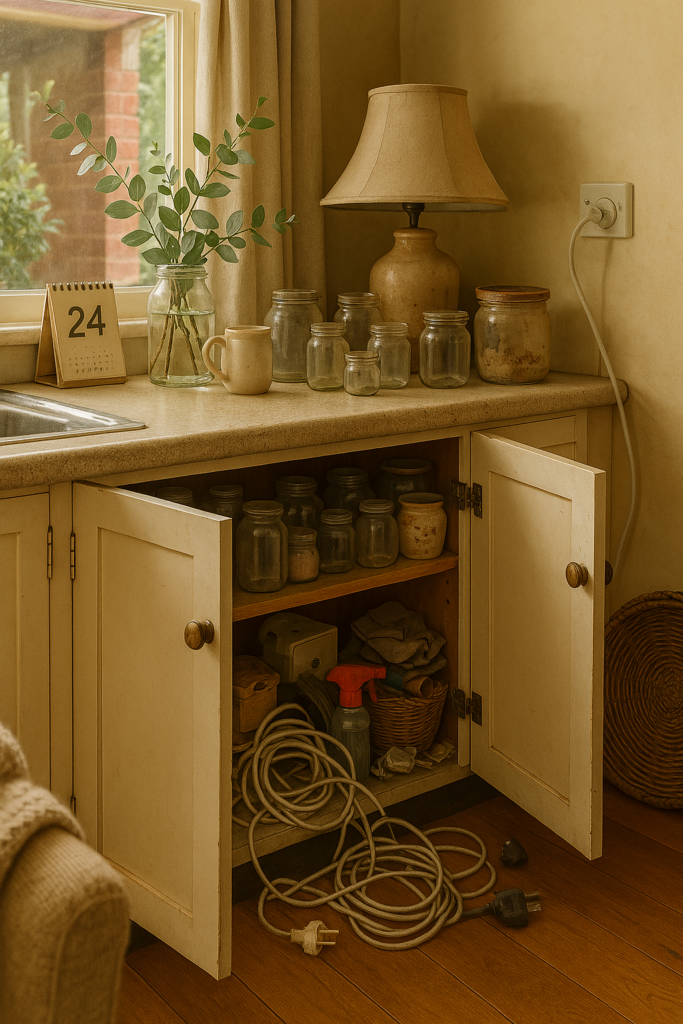Spoiler alert: You probably are.
Some of the stuff in your home is doing the organisational equivalent of lying on your couch, eating your snacks, and paying no rent. I call these little gremlins freeloaders—items that take up space but give you absolutely nothing in return.
They’re not useful. They’re not sentimental. They’re not sparking joy. And somehow, they’ve become invisible.
But just because you’ve stopped noticing them doesn’t mean they’re not quietly contributing to your stress.
What Are Clutter Freeloaders?
Freeloaders are the things you’ve kept “just in case” or “because I might use it one day”… but never actually do.
Think:
- That collection of jars you’re saving for a future project you haven’t started
- The cords that belong to devices you don’t even own anymore
- Clothes that don’t fit but might if the stars align
- Old textbooks from a course you didn’t finish
- Homewares you don’t like but feel guilty throwing out
Sound familiar? These are the freeloaders. The clutter squatters. And your home deserves better.

Where Are Freeloaders Hiding?
Freeloaders are sneaky. They often hang out in:
- Back-of-the-cupboard zones
- Bottom drawers
- Top shelves of wardrobes
- Linen cupboards
- Storage tubs you haven’t opened in years
Start there. No need to tear apart your whole house—just peek in one cupboard and see what’s overstayed its welcome.
Questions to Help You Decide What Stays
Once you find a potential freeloader, ask yourself:
- Do I use this regularly?
- Would I miss it if it disappeared?
- Am I keeping this out of guilt, obligation, or “just in case”?
- Has this earned its place in my home?
If it’s a “no,” or even a hesitant maybe, you might be looking at an eviction.
Real-Life Win: The Case of the Dusty Jars
One of my coaching clients recently tackled a shelf full of jars she was “definitely going to use one day.” You know the ones. They were cluttering up her kitchen, silently judging her every time she opened the cupboard.
She kept a few that genuinely came in handy—but let the rest go.
The result? Breathing room. Mentally and physically.
You Don’t Need to Be Ruthless—Just Realistic
This isn’t about chucking everything and becoming a minimalist monk. It’s about creating space for the stuff (and people) you actually care about.
Letting go of freeloaders isn’t failure. It’s freedom.
Even one drawer decluttered is a win. Your nervous system will thank you for it.
Want Help Spotting the Freeloaders?
This is exactly the kind of work we do in my one-on-one decluttering coaching—tackling your space in a way that actually works for your brain (no shame, no overwhelm, no Marie Kondo cosplay).
Need a bit of help getting started?
👉 Book a free discovery call with me
👉 Or check out my DIY Simplicity Course to work through it at your own pace
